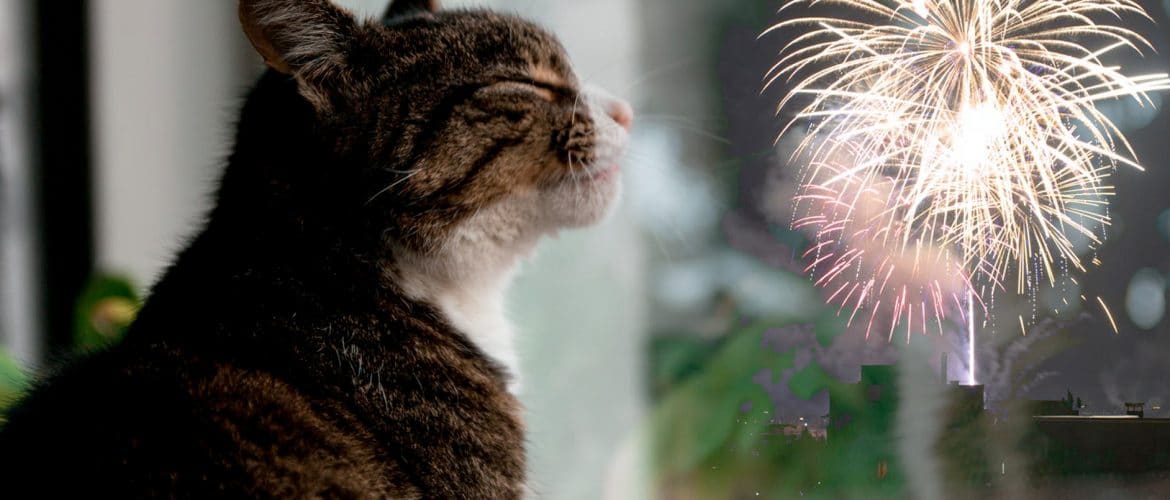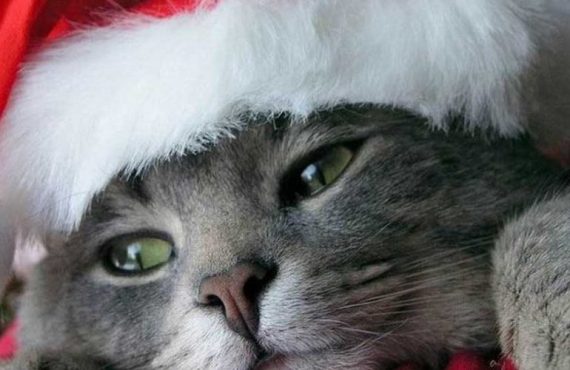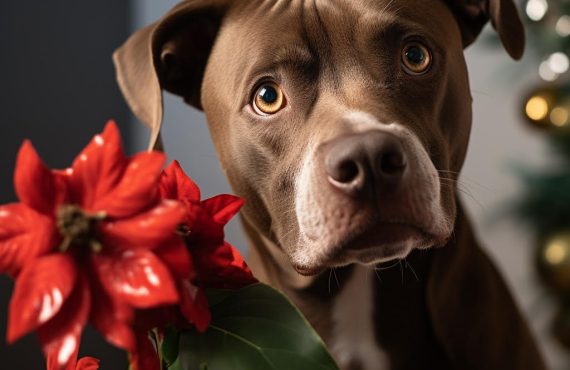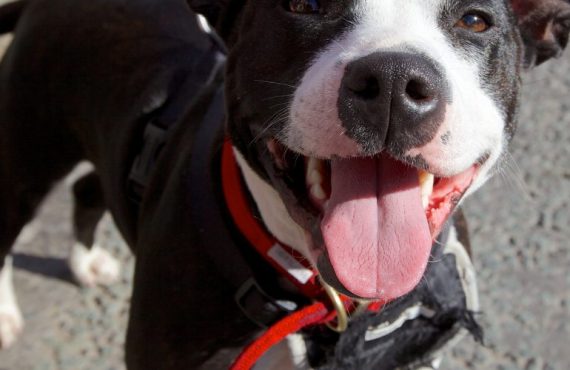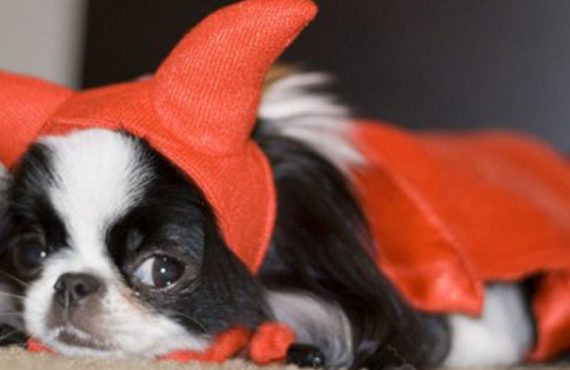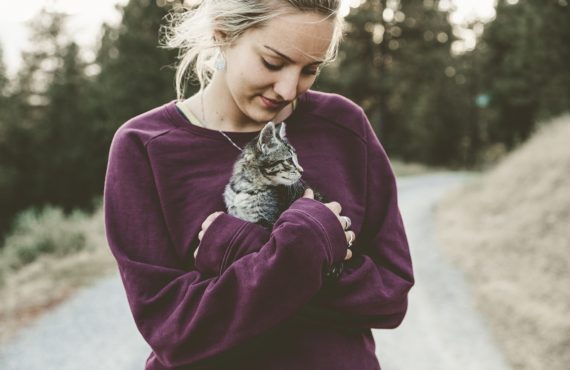Measuring around 150 decibels, fireworks are louder than gunfire (140 decibels) and even many planes at takeoff (120 decibels). If you think fireworks are loud, think of what they sound like to dogs and cats who have much more sensitive hearing than ours.
Many folks opt to purchase fireworks to set off at home. This is bad news for pets, as the booms are just down the street rather than over the water at a local park or beach. A large percentage of pets have noise phobias, but fireworks are even scarier than a thunderstorm as they are erratic and unpredictable. The booms and pops come out of nowhere, spooking pets and confusing them.
When frightened by fireworks, many pets will bolt and owners may lose their furry family members at night when they are hardest to find.
“Dogs have been known to dig under or jump over fences, break tethers or even shatter windows in response to their fireworks fears,” Temma Martin, the public relations manager for the Best Friends Animal Society, told CNN. These pets are often running loose, scared, and alone, trying to escape the noise.
So what is a pet owner to do?
ID up. First things first, before the holiday, be sure your pet’s tags are up-to-date and that their microchip is registered with correct contact information. Be sure your pet has a well-fitting collar on, with current identification tags.
Wear them out before the festivities start. Take your pooch for a long walk, play laser chase with your cat, and make sure they are exhausted ahead of dark. A tired pet is a calm pet. It’s hard to have excess anxious energy when you’ve used it all up playing!
Bring all pets indoors. Don’t leave your pet outside to suffer alone. Put a dog’s crate or bed in the quietest interior room possible, and see if they like being covered with a blanket. Make sure cats have somewhere high up to retreat to – they like being high up when they’re scared. Close off pet doors.
Help muffle the sound. Turn on a radio or TV to drown out the noise – some experts suggest putting on a war movie to blend in with the sounds outside.
Distract your pet. Chews, food puzzle toys, treats, and new, fun things to get excited about can take their mind off the noise.
Use calming aids. Many pets respond to thunder shirts or blankets that wrap them in a “weighted blanket” cocoon. Treats or oils with calming ingredients may help your anxious pets. If the anxiety is really debilitating, check with your vet to see if medication may make sense on occasions such as July 4th or New Year’s Eve.
If you have any questions, please feel free to call the store or come in to see us. Have a safe and happy 4th!

